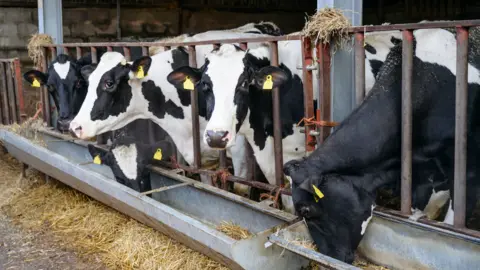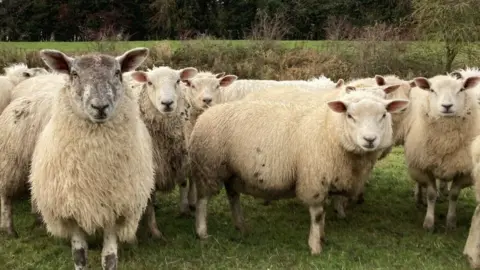Bluetongue: Restrictions after virus found in cattle on Norfolk farm
 Getty Images
Getty ImagesMovement restrictions have been put in place after two animals were found to have the livestock disease bluetongue.
A 10km (6.2-mile) temporary control zone for moving livestock is now in force around the farm just outside Cantley, near Acle in Norfolk.
The two cases were found in cattle, said the Department for Environment, Food and Rural Affairs (Defra).
It can cause infertility and breathing problems in sheep, cattle and goats.
Bluetongue poses no risk to humans or the food chain, but outbreaks can result in prolonged animal movement and trade restrictions.
The cows will be humanely culled to try to stop the spread, Defra said.

Cases were discovered for the first time in the UK since 2007 on a farm near Canterbury in Kent on 11 November.
It is spread by the bite of midges, and Defra said the south and east of England were especially vulnerable, due to winds carrying the insects across the Channel.
Bluetongue is more common in hotter countries with biting midges.
Defra said there were now a total of 11 cases on six different premises, but there was no evidence that the virus was circulating.
However, the agency urged all livestock owners to be vigilant and report any suspected cases.
Farmers within the control zone can apply for licences to move livestock if there is a specific welfare need, it added.
The infection affects cattle, sheep, goats, deer, llamas and alpacas and can cause painful ulcers and swelling around the mouth and nostrils.
It can also lead to breathing problems, lameness and infertility, and affects milk production.

Follow East of England news on Facebook, Instagram and X. Got a story? Email [email protected] or WhatsApp 0800 169 1830
